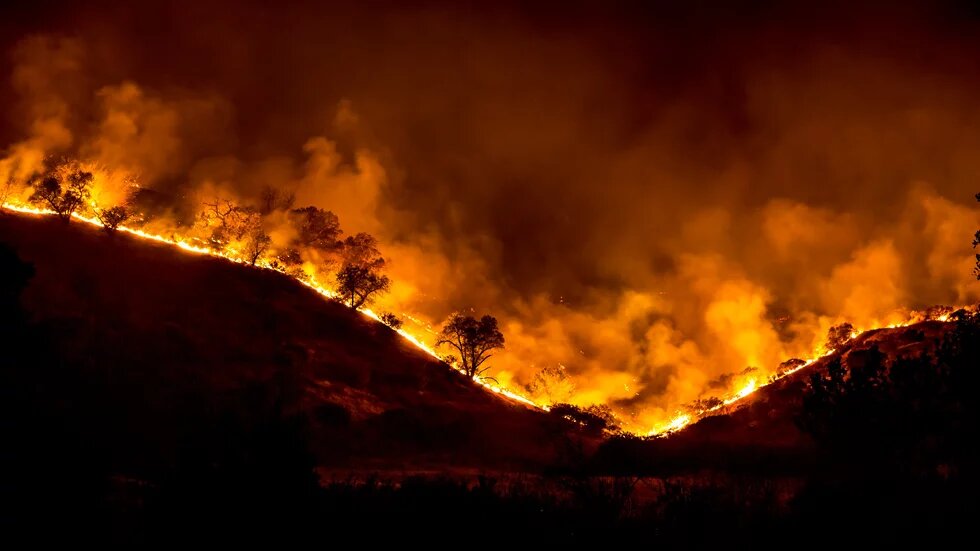Five years after the inception of the Paris Agreement, important processes begin. Also this year, Germany holds a non-permanent seat in the United Nations Security Council as well as EU Council presidency. What are the challenges and opportunities for Germany regarding climate action?

2020 will be yet another year of decisive steps for the implementation of the Paris Agreement. Climate policy governance at the international level builds upon the UN Framework Convention on Climate Change (UNFCCC) and its treaties. At the heart of the Paris Agreement (2015) is a revolving process of regular pledges on climate actions and finance by individual countries on the one hand, and reviews of climate protection targets and financial transfers every five years, on the other hand.
2020 is the first year where these processes are launched, but the prospects are bleak. The 25th Conference of the Parties (COP25), convened in Madrid in December 2019, illustrated the cleavages between particular groups of countries more clearly than before. The COP25, hosted by Chile, was meant to deliver on technical details (regulating international emissions trading) and to prepare for the first refreshment of the nationally intended contributions (NDCs) due in 2020. It delivered on neither of the two.
The climate regime depends on the power of leaders
The Paris Agreement was the result of a combined leadership effort across the board. The US-led diplomatic outreach brought in key countries such as China and India, supported a hesitant Japan, and offered US domestic ambitions and bilateral cooperation, for example on tackling air pollution in China. In the UNFCCC negotiations, China and India had dominated for many years a debate on fairness, and insisted on being part of the G77 developing countries group. Thus, despite their growing contribution to global warming, they refused to bring down their emissions pathways.
The European Union contributed to the Paris deal over several years by intensive cooperation with least developed countries and small island development states (SIDS). A key moment was the end of the COP18 2012 in Durban where more than 100 G77 developing countries stood behind the EU in demanding from India and China to agree on a new quality of international commitment to climate action. France, as the host of the COP21 in Paris 2015, applied its full scope of diplomatic skills to get hesitant countries to agree. Brasil was an important player too, acting as a leading regional climate diplomacy power of the Americas, together with Mexico.
These days are over. US President Donald Trump withdrew from the Paris Agreement in 2017, which will apply from November 2020. In 2017 China joined forces with the EU, Mexico and Canada to keep up the commitments and to lower the risk that the US withdrawal could bring about for multilateral climate action. However, mainly due to the enormous diplomatic resources that the US power politics have been generally sucking out of the international system since then, China did not follow up. India, never a pro-active player in this field, fell silent. The Brasilian government, too, has turned its back on ambitious climate policy under Jair Bolsonaro. The EU remains, together with Mexico, Canada and the vulnerable countries, to breathe new life into the implementation agenda of global climate governance.
Three years into the tidal change, the search for committed climate partners has become more pressing and urgent than ever before. On the backdrop of US power politics, the EU has achieved only very little progress. The latest defeat could be witnessed at COP25 negotiations in Madrid, where the US, Saudi Arabia, Australia and Brasil did not agree to apply strict and transparent rules for international emissions trading. An alliance of 31 countries, the „Unconventional Group“ of ambitious countries, led by Costa Rica, set up the so-called St Jose Principles for reliable and strict regulations. In this group, Germany and France as well as 17 other European countries cooperate with six small island states, five Latin American countries and New Zealand. This kind of issue-driven coalition is very common in international climate governance.
Germany in a unique position
Germany, as the initiator of the alliance for multilateralism that supports the United Nations system – up to date, however, without any explicit climate-related initiative - is in the unique position to further develop issue-specific formations. It should certainly not do this alone. Yet, 2020 holds ready a number of critical events. One of the key diplomatic tasks is to keep up the narrative of international climate cooperation, which is needed to back the survival of the Paris Agreement’s core - while the big powers US and China are expected to continue their nationalist agendas, bilateral trade disputes, and security power games.
- Key challenges for Germany’s climate partnerships
Working with as many countries as possible on climate policy issues fosters the multilateral idea and makes the engagement for climate action credible. In the short and medium term this helps to enhance the political leverage to push for implementation of the Paris Agreement through using the power of large numbers. The UN system gives each country a voice and a vote, the guarantee for legitimacy. At the same time, it is weakened by the lack of majority decision making – as UNFCCC talks illustrate on a regular basis.
Things get more complicated when cooperation needs common interests in particular policy fields that relate to climate change. To name a few: investing in renewable energy supply, deal with climate impacts and risks, build capacities in good climate governance, cooperation within critical institutions (Green Climate Fund, World Bank), investment in low-carbon infrastructure. This entails the need for a well-managed portfolio of common initiatives, regular exchanges on climate policy priorities, agenda setting for major meetings, diplomatic resources to prepare for decision making and implementation of agreed measures, and a division of tasks with equally ambitious partner countries in bringing forward the key ideas of climate governance.
Moreover, Germany and the EU, when engaging in most of the mid-sized partner countries, confront a situation where the big players undermine their agendas. The US for example exports coal and gas and promotes fossil fuels as a solution to energy poverty in Africa, Asia and Latin America. China supports such investment via its Belt and Road Initiative – which meanwhile reaches out to Eastern Europe. The Australian government invests in coal mining for world markets, regardless of the potential links to droughts and bushfires.
The US withdrawal brought about a more intense involvement of sub-national and non-state actors. The „We are still in“- initiative for example announced to follow up on the US-Paris pledge of 2015. The group consists of US states and municipalities, and private businesses. Similarly, the Brasilian parliament and civil society actors are helping to connect the international agenda with that of national communities. The international outcry about the Amazon fires in 2019 was a good example of how international attention can leave an impression on leaders.
- Taking the EU center stage
Germany will hold the EU Council presidency in the second half of 2020. This will be the time by which the new European Commission will have hoisted a new set of sails for EU climate action, the Green Deal. With a view to EU-led international climate governance progress, two countries will need full attention. First, Poland needs to be on board to agree in the European Council on the new EU-wide climate targets for 2030 and 2050, as both targets constitute new pledges for the Paris Agreement, due by end of 2020. A Green Deal package will have to include early offers to Eastern European member countries as they are very reluctant to agree to more climate ambitions. Second, the UK will be the key European country in 2020 for international negotiations, even if the Brexit seems to come in the way. As the physical host of the COP26 (co-hosted with Italy, held in Glasgow), the UK will want to demonstrate that international climate diplomacy delivers on the Paris Agreement. The UK will need Germany, not only because Germany holds the EU presidency, but also because of Germany’s long-standing expertise in contributing to international climate deals.
- Important, but difficult: G20 and UN Security Council
The key actors to reduce emissions quickly are the twenty biggest economies (G20). They are responsible for around 80 per cent of global emissions, mostly because of their high consumption and production of fossil fuels. However, the US, Russia, China, Saudi Arabia, Australia, Japan, and Argentina are no longer engaged in climate policy, or never really have been in a pro-active manner. The German government, during its G20 presidency in 2017, singled out the US in the G20 final declaration in an effort to address the US retreat from the Paris deal. Argentina (2018) and Japan (2019) did not follow up. For the time being, a return to this course can neither be expected when Saudi Arabia holds the presidency in 2020. Their announcement of „Managing Emissions for Sustainable Development“ as part of the G20 agenda is vague; repeated blockages of key COP decisions under the UNFCCC show that Saudi Arabia is not backing an ambitious international agenda.
Nevertheless, Germany will have to work with these G20 partners. This refers in particular to the use of diplomatic resources to confront the heads of state with the pressing climate issue and with an outspoken request to return to the multilaterally agreed agenda.
Moreover, Germany has a non-permanent seat in the UN Security Council in 2019-2020 and is likely to connect this with the alliance for multilateralism, when holding an open debate on climate impacts and related security risks in July 2020. That month, Germany will hold the presidency of the Council. The open debate will highlight well-known effects from increasing global warming, and the severe disruptions of human security in regions with fragile statehood. The role of climate change as a risks multiplier has been recognised during the last years. Yet, the Security Council members do not all agree that this should be a matter to deal with from a security perspective. The SIDS are vulnerable because they are facing sea level rise on top of extreme weather events. Some African countries, for instance those in the Chad Lake region, are confronted with long-standing conflicts among ethical groups, and a decades long decline in resources due to the shrinking lake. Terrorist groups have taken advantage these constellations. Some Asian countries suffer from increasing levels of melting water from the Himalaya glaciers, and from flooding from the oceans, taking away more and more land from the densely populated regions. Regular Security Council debates help these countries by raising awareness in times of increasing national interest among the big players.
However, the US, Russia and China – all are permanent members of the Security Council - are not willing to devote many resources to the topic. Germany will have to identify particular impacts from climate change to get them on board, for example handling risks from natural disasters that will affect them, too.
Partners for setting the 2020 climate policy agenda
Germany can rely on a number of partner countries who have proven that they can build broad alliances. France and the UK are critical, as are the Scandinavian countries, Spain, Austria, the Netherlands and Belgium. Costa Rica and New Zealand stick out as alliance partners, both have proven that they can mobilise other countries to cooperate. New Zealand will start in February a new trade initiative (ACCTS) that puts climate protection at its core. Singapore alike is an active player in the South East Asian region. The SIDS, represented for instance by the Marshall Islands, have been Germany’s partners for years. Regarding the African continent, the search for partners is more complex, due to the dynamic trends comprising civil unrest, Chinese economic engagement, migratory pressures. For many years, Egypt has been speaking on behalf of the African Group in climate and environmental forums, South Africa remains a key player on the continent, Ghana has become more engaged recently. The cooperation with Canada and Mexico should become more fruitful. Last but not least, climate governance is only one side of the medal, the other is the implementation of climate policies. Thus, non-state actors and the key financial and economic institutions have an increasing role to play in building a case against the power politics that so strongly tug at the multilateral climate order.


